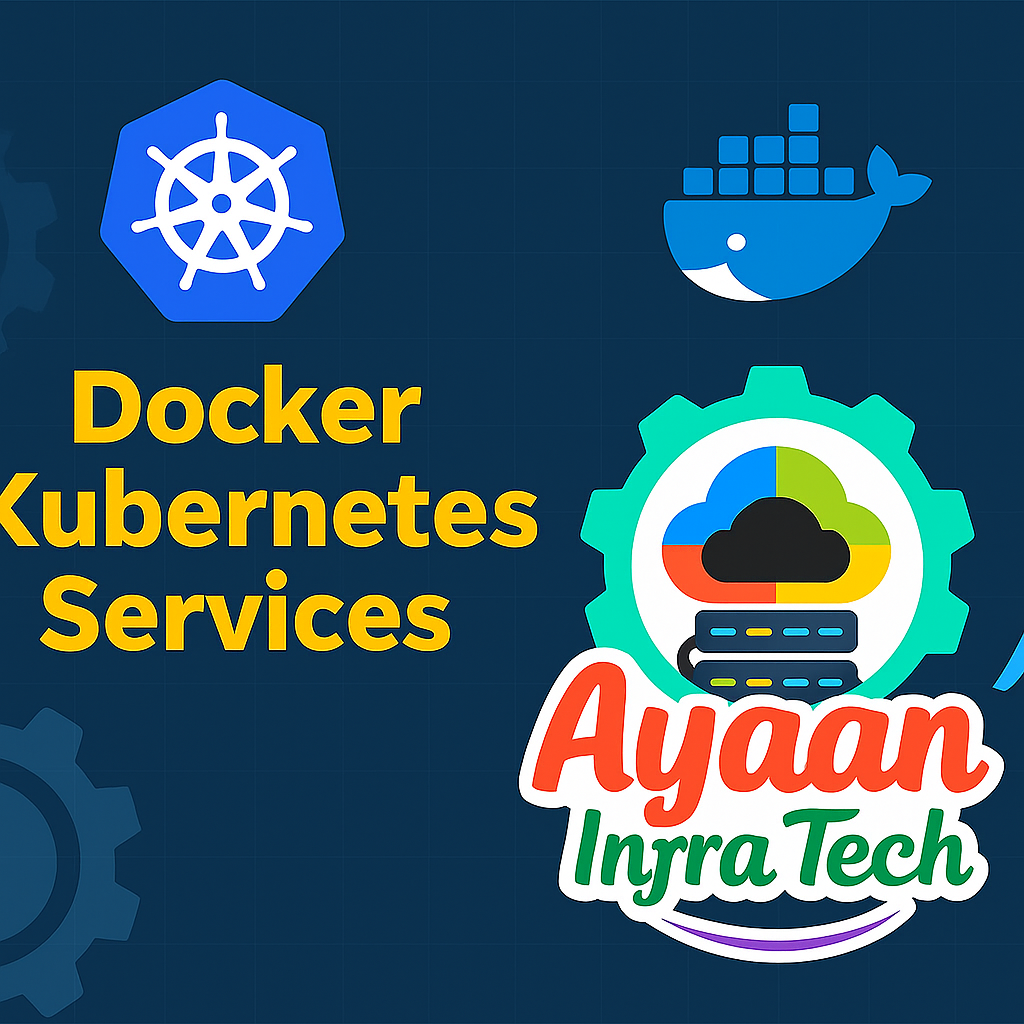In the modern digital landscape, speed, scalability, and reliability aren’t just nice-to-have qualities — they’re essential for survival. Docker Kubernetes Services have emerged as a powerful combination for businesses that want to modernize their infrastructure, streamline application delivery, and maintain a competitive edge.
For companies in Bangladesh, where the tech sector is growing rapidly, leveraging containerization and orchestration can mean transforming not only IT operations but also the overall business performance. Ayaan Infratech, a leading provider of IT and DevOps services, is at the forefront of helping organizations embrace these technologies.
1. Introduction to Docker and Kubernetes
⚡ Think of Docker as the shipping container of the software world — a neat, standardized package for your applications. Kubernetes? That’s the automated port system that manages thousands of those containers, ensuring they’re loaded, unloaded, and moved to the right place at the right time.
When used together, Docker Kubernetes Services allow companies to:
- Build applications once and run them anywhere.
- Deploy software updates seamlessly.
- Scale up or down based on demand.
2. What Are Docker and Kubernetes?
2.1 Docker – The Container Platform
Docker is an open-source platform that enables developers to package applications and dependencies into a single, portable unit called a container. These containers can run consistently across different environments — from a developer’s laptop to production servers.
Key features of Docker:
- ✅ Portability
- ✅ Lightweight execution
- ✅ Version control for applications
- ✅ Rapid application deployment
2.2 Kubernetes – The Orchestration Master
Kubernetes (often called K8s) is an open-source orchestration platform for automating deployment, scaling, and management of containerized applications. Developed by Google, Kubernetes takes the complexity out of running containers at scale.
Core capabilities of Kubernetes:
- ✅ Automated container scheduling
- ✅ Load balancing and service discovery
- ✅ Self-healing (automatic restart and replication)
- ✅ Rolling updates and rollbacks
3. Why Docker Kubernetes Services Matter Today
In today’s cloud-first era, traditional infrastructure often can’t keep up with the demands for agility and scalability.
Global Industry Trends:
- Container adoption has surged, with over 90% of organizations using containers in some form.
- Kubernetes is the de facto standard for container orchestration.
- DevOps pipelines are increasingly built around container-based workflows.
Bangladesh Relevance:
With a fast-growing startup ecosystem, e-commerce boom, and digitization in industries like finance, logistics, and healthcare, Docker Kubernetes Services offer:
- Cost-effective scaling without overprovisioning hardware.
- Faster time-to-market for software updates.
- Enhanced reliability for mission-critical applications.
4. Key Benefits of Docker Kubernetes Services
4.1 Faster Deployment Cycles
Automation allows teams to push updates multiple times a day without downtime.
4.2 Improved Resource Utilization
Containers share the same OS kernel, making them lightweight and efficient.
4.3 Scalability on Demand
Kubernetes can automatically add or remove containers based on traffic spikes.
4.4 Consistency Across Environments
From development to production, applications behave the same.
4.5 High Availability
Self-healing features ensure minimal service disruption.
5. How Docker Kubernetes Services Work Together
Step 1: Containerizing Applications with Docker
Developers create Docker images containing application code, libraries, and dependencies.
Step 2: Deploying to Kubernetes Clusters
These images are deployed across Kubernetes nodes for redundancy and scalability.
Step 3: Managing and Scaling Automatically
Kubernetes monitors health and adjusts resources in real-time.
Step 4: Continuous Integration and Continuous Delivery (CI/CD)
Integrating CI/CD pipelines ensures rapid, automated updates.
6. Real-World Example
Imagine an e-commerce platform in Dhaka facing heavy traffic during Eid sales. Without containers, scaling servers would be slow and expensive. With Docker Kubernetes Services, the business can:
- Spin up dozens of containers instantly.
- Distribute traffic evenly across multiple servers.
- Roll back any faulty update without impacting users.
7. Challenges in Adopting Docker Kubernetes Services (and Solutions)
Challenge 1: Steep learning curve for teams.
Solution: Partner with experts like Ayaan Infratech for training and managed services.
Challenge 2: Complexity in managing multi-cloud environments.
Solution: Use Kubernetes federation and automation scripts.
Challenge 3: Security concerns in containerized workloads.
Solution: Implement DevSecOps practices to integrate security early.
8. Docker Kubernetes Trends to Watch
- Serverless + Containers – Event-driven workloads in Kubernetes.
- GitOps – Managing Kubernetes configurations via Git.
- Service Meshes – For better microservices communication.
- Edge Computing – Running containers closer to users for low-latency apps.
9. How Ayaan Infratech Can Help You Modernize Infrastructure
As a trusted name in IT solutions, Ayaan Infratech provides end-to-end Docker Kubernetes Services:
- ✅ Containerization of existing applications
- ✅ Kubernetes cluster setup and management
- ✅ CI/CD pipeline integration
- ✅ Security hardening and monitoring
- ✅ Training and ongoing support
Whether you’re a fintech startup or a large enterprise, our tailored solutions ensure you get the most from modern infrastructure technologies.
👉 Order our Docker Kubernetes Services today and take your IT operations to the next level.
10. FAQs About Docker Kubernetes Services
Q1: Can Docker and Kubernetes be used separately?
Yes, Docker can run without Kubernetes, and Kubernetes can manage other container runtimes — but they work best together.
Q2: Is Kubernetes overkill for small businesses?
Not necessarily — even small setups benefit from automation and scalability.
Q3: How secure are Docker Kubernetes Services?
With proper configuration and DevSecOps practices, they are highly secure.
Q4: What’s the typical implementation time?
From a few weeks to a few months, depending on complexity.
Q5: Can Ayaan Infratech manage my Kubernetes cluster?
Absolutely — we offer fully managed Kubernetes solutions tailored to your needs.
11. Conclusion + Strong Call to Action
Modernizing your infrastructure with Docker Kubernetes Services isn’t just about adopting new tools — it’s about transforming the way your business delivers value. From faster deployments to improved scalability, the benefits are undeniable.
With Ayaan Infratech as your partner, you can confidently embrace containerization and orchestration, ensuring your IT operations are ready for the future.
👉 Get started with Docker Kubernetes Services now and unlock the full potential of your infrastructure.

